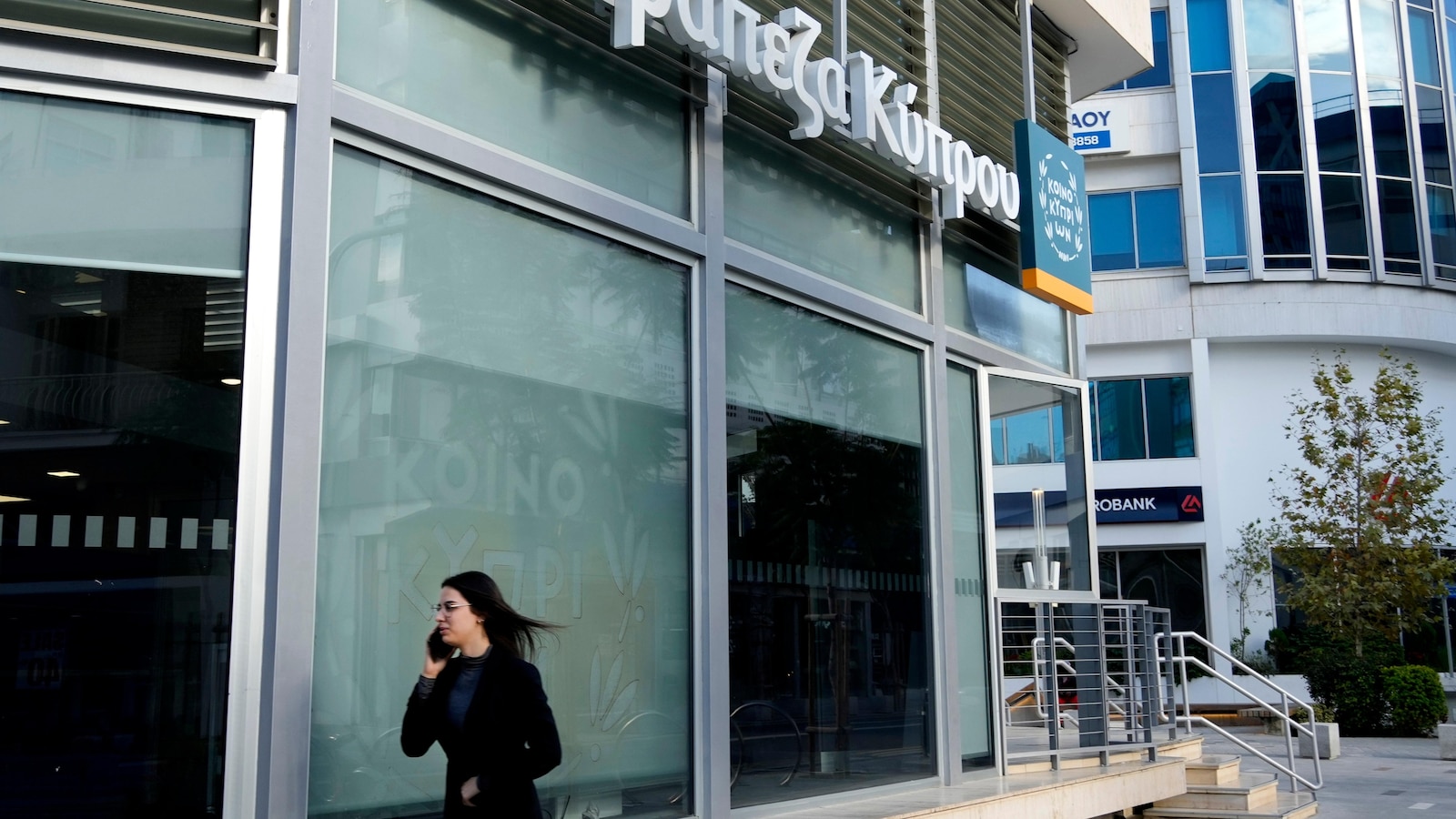Cyprus’ banks say their exposure to risky Russian and Ukrainian businesses shrunk by more than 13,000 clients and 35,000 accounts, amounting to $2.17 billion, in the year after Moscow’s 2022 invasion of its neighbor as they adhered to sanctions that th…
NICOSIA, Cyprus — Cyprus’ banks said Friday their exposure to Russian and Ukrainian businesses shrunk by more than 13,000 clients and 35,000 accounts, amounting to 2 billion euros ($2.17 billion), in the year after Moscow’s 2022 invasion of its neighbor as they adhered to sanctions that the U.N., the European Union, the U.S. and Britain have imposed on Russia.
According to official figures seen by The Associated Press Friday, the proportion of Russian clients in Cypriot banks almost halved in the same period to 0.35%, while Russian deposits fell from 2.21% to 1.53% of the banks’ total.
Cypriot banks are keen to showcase a sustained, decade-long turnaround from lax supervisory practices that attracted shady depositors, including wealthy Russian oligarchs. Cypriot officials said a transparent financial system free of such practices would help entice legitimate international investment.
That turnaround, triggered by a 2013 financial crisis that brought Cyprus to the brink of bankruptcy, resulted in the number of Russian and Ukrainian clients being slashed by 90% and 61% respectively between 2014 and 2023. Russian and Ukrainian deposits in the same period dwindled by 83% and 71% respectively.
Overall, Cypriot banks ended business relationships with more than 72,000 clients and shut down nearly 161,000 accounts between 2014 and 2023, amounting to nearly 42 billion euros ($45.5 billion.)
Speaking for the Association of Cypriot Banks, Marios Skandalis, chief compliance officer of the island’s largest financial institution, the Bank of Cyprus, said Cypriot banks are among very few internationally that fully enforce restrictions on goods with both civilian and military applications that a number of Russia-friendly countries deal in.
He said there were more than 15 countries that Moscow may use to skirt sanctions. After restrictions were imposed on the so-called “dual use” goods, tougher Cypriot bank vetting of these countries’ transactions saw a drop in turnover from 16.5 billion euros ($17.9 billion) in 2014 to just 3.8 billion euros ($4.1 billion) in 2023.
Cypriot banking officials say bank clients as well as all payments and deposits are filtered through U.S, U.K, EU and U.N. sanctions lists daily. Also, any business dealings with close family members or associates of individuals who have been sanctioned are terminated.

